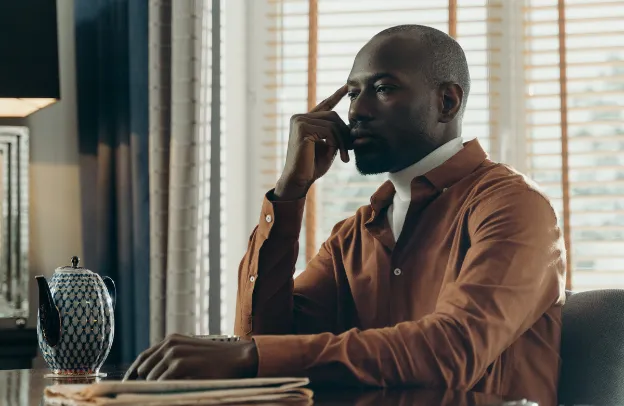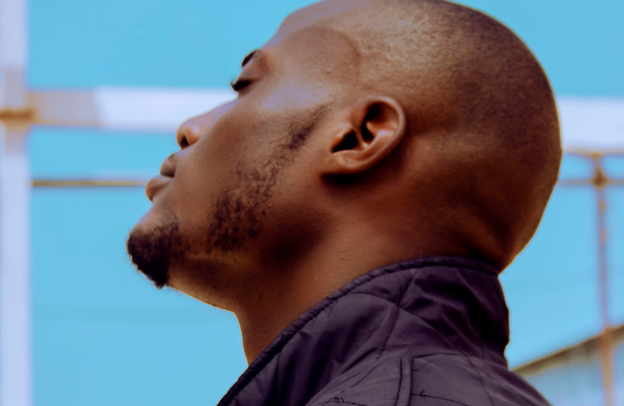White Philanthropy and the Perpetuation of the ‘Black Crabs in a Bucket’ Syndrome: Analyzing Systemic Barriers to Black Advancement

Dr. Negus Rudison-Imhotep | Contributor on topics related to memory and memory building
In this thought-provoking article, Dr. Negus Rudison-Imhotep, our expert contributor on memory and memory-building, delves into the intersection of White philanthropy and Black Crabs in a Bucket Syndrome. As he dissects the systemic foundations of Racial Capitalism, Dr. Rudison-Imhotep highlights how the African Diaspora has historically been commodified within global economic frameworks.
Learn with AClasses Academy and improve yourself and your business skills.
He applies this lens to the African American community in Central Iowa, where a surge in nonprofit organizations within Des Moines’ 50314-zip code—one of the state’s most economically distressed areas—has inadvertently perpetuated cycles of poverty.
Through his critique, Dr. Rudison-Imhotep examines how these nonprofits, despite their noble beginnings, often fall prey to the corrosive dynamics of competition for funding, resulting in exploitation and divisiveness within the community they aim to serve.
His compelling analysis draws from key academic insights, including Maribel Morey’s White Philanthropy, to explore the role of elite philanthropy in maintaining white supremacy and its consequences on Black communities. Now here is the full argument by Dr. Rudison-Imhotep
White Philanthropy & Black Crabs as presented by White Philanthropy & Black Crabs in A Bucket Syndrome
Firstly, my argument is that Racial Capitalism is the foundation of the current global economic system we navigate, and members of the African Diaspora have historically been, and continue to be, treated as commodities. This framework seeks to illuminate the current state of White Philanthropy within the African American community in Central Iowa.
The plethora of nonprofit organizations inundating the 50314-zip code exemplifies this construct. This zip code, labeled as the neediest area in the state, sits in the heart of the capital city. Blacks represent 4% of the state population, and in Des Moines, they constitute 14.5%, totaling 30,629 individuals.
Because of the influx of nonprofit organizations, the community remains underprivileged due to the lack of revenue-building businesses in this area. The largest nonprofit organization in the zip code is Mercy One Medical Center on the corner of 6th Ave. and University Ave.
See also Racism: A Global Crisis in Need of a Cure – Confronting the Moral Dilemma of Discrimination
However, this zip code once had the highest Black population in the city. My experience in the public sector has given me a unique perspective on the intense financial competition among these low to no-income organizations, which were established to address the needs of underserved communities. When various nonprofits seek funding, the “crabs in a bucket syndrome” mentality comes into play.
The animosity between these organizations is evident. Many directors use their social presence as a stepping-stone to political office, becoming entangled in the complexities of White Supremacy and Racism.
Although many of these organizations may have been founded with noble intentions, the pursuit of funding often shifts their financial priorities, amplifying their greed. “Poverty pimps” is an appropriate term to describe leaders who match these criteria. Just as many attorneys and law firms have been characterized as ambulance chasers, the same could be said about leadership in many organizations.
To add insult to injury, some of the leadership and staff of these nonprofits rummage through perishable items donated to the public before issuing them to the populace. The marginalized population in this region of the city is familiar with the hand-me-down mentality that dictates how services and resources are distributed to their clients.
See also What Racism Requires: Religion And Science Were To Go Hand In Hand
From Turkey Give-Aways during the holidays to free gas, the poverty pimps in Des Moines are vying to be the United Way of Central Iowa and Community Foundation of Greater Des Moines’ terminal flunkey. My question is why these communities remain in desperate circumstances despite years of funding being funneled into many of these organizations.
During the COVID-19 pandemic, I read Maribel Morey’s manuscript, “White Philanthropy: Carnegie Corporation’s An American Dilemma and the Making of a White World Order.” Instantly, the veil of ignorance was lifted, and my understanding of this system became clear. Maribel Morey’s publication provides empirical evidence-based data and historical facts that support my supposition of “Black crabs in a bucket syndrome.”
In “White Philanthropy,” Maribel Morey examines the historical and influential role of the Carnegie Corporation in funding social science research, with a particular focus on Gunnar Myrdal’s pivotal study, “An American Dilemma.” The book uncovers that this study, often regarded as a cornerstone of U.S. race relations, was commissioned to uphold white supremacy rather than to challenge it.
Morey delves into the global origins of “An American Dilemma” and its ties to other Carnegie-funded initiatives, highlighting how these projects were designed to assist white policymakers in better managing Black populations.
The book offers a comprehensive account of how elite philanthropy has perpetuated white dominance and provides insights into the mechanisms that enable this. It is a thought-provoking work that illuminates the racialized foundations of elite U.S. institutions and their influence on race relations and power dynamics. The purpose of this article is to inform the public of the truth.
See also Racism And Slavery: African Crisis Is An Invention Of The West
Those ensnared by this philanthropic behemoth will never disclose such information to the public. I was born to harass white racists and their obscene caricatures of the European oppressors.
Unapologetically and with all humility, Dr. Imhotep. A lie can travel halfway around the world while the truth still puts on its shoes. – African Proverb.
Reference
To learn more see White Philanthropy, Philanthropy Advisors/ and The making of a white world order
Three Lessons To Take Away By The African Diaspora Approaching White Philanthropist
Having gone through this article by Dr. Imhotep, several key lessons emerge for the African Diaspora when approaching White philanthropy. Dr. Imhotep’s analysis sheds light on the complex dynamics of racial capitalism and the often-exploitative nature of philanthropic efforts within marginalized communities.
As we navigate these systems, it becomes clear that there are critical insights to consider in how we engage with White philanthropy. The following lessons offer a framework for Black individuals and organizations to approach these philanthropic efforts with a heightened awareness of their potential impact on long-term empowerment and community solidarity.
Understand the Underlying System of Racial Capitalism:
Dr. Rudison-Imhotep emphasizes that the current global economic system is built on Racial Capitalism, where Black people and the African Diaspora have historically been treated as commodities.
See also The Power of Group Cultural Tourism to Build Deeper Connections Among People of the African Diaspora
When engaging with White philanthropy, Black individuals and communities must recognize this systemic framework and understand that charitable efforts often operate within these oppressive structures, potentially perpetuating cycles of exploitation.
Beware of the “Crabs in a Bucket” Mentality:
The article highlights how competition for funding among nonprofit organizations can foster division and animosity, undermining community solidarity.
Black communities and organizations should be mindful of how the pursuit of resources might fuel unhealthy competition and the “crabs in a bucket” syndrome, where entities within the community tear each other down instead of working together toward collective empowerment and progress.
Recognize the Intentions Behind Philanthropy:
Drawing from Maribel Morey’s work on White philanthropy, Dr. Rudison-Imhotep stresses that many philanthropic efforts historically have been designed to maintain white dominance and control.
Black communities should critically assess the motivations behind philanthropic initiatives and ensure that the funding and resources they receive align with their long-term empowerment, rather than reinforcing existing power imbalances or compromising their autonomy.
Best Alternatives To White Philanthropy In African Diaspora Community
For alternatives to White philanthropy within the African Diaspora community, there is a need to focus on fostering self-sufficiency, collective economic power, and community-led initiatives.
Rather than relying on external philanthropic efforts, the Diaspora can prioritize building local businesses, cooperatives, and financial institutions that serve the needs of their own communities.
See also John Williamson Kuyé, Right of the People to Self-Determination 1926
This includes promoting grassroots organizing, cultural preservation, and educational programs designed to empower the next generation with the tools to build sustainable wealth and social mobility.
Strengthening African Diaspora networks and collaborating with Pan-African organizations can also provide a foundation for pooling resources and supporting initiatives that are aligned with the community’s values and long-term goals, rather than being subject to the control or biases of external philanthropic entities.
Conclusion – Harnessing Our Local Resources
In conclusion, Dr. Negus Rudison-Imhotep’s powerful critique of White philanthropy within the African Diaspora is a call for self-empowerment, solidarity, and systemic change.
By exposing the deep-seated issues within charitable frameworks that often perpetuate exploitation, he urges the community to move beyond reliance on external funding and instead embrace models of economic independence and collective growth.
As the African Diaspora continues to navigate the complexities of racial capitalism, we must shift our focus to grassroots solutions, mutual support, and the creation of sustainable infrastructure that prioritizes our own well-being and advancement.
The future of our communities lies in our ability to unite, harness our resources, and build from within—empowered, unshaken, and unwavering in our commitment to true liberation.
Learn with AClasses Academy and improve yourself and your business skills.





